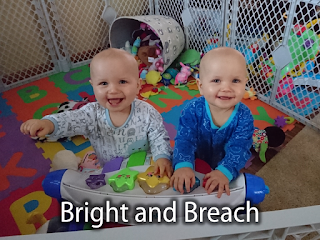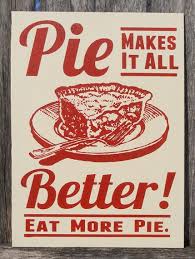Hespeler, 8 October, 2017 © Scott McAndless – Thanksgiving
Isaiah 25:1-8, Luke 7:31-35, Psalm 138:1-8
t is Thanksgiving Sunday and many people who live in the Cariboo Region of British Columbia are having a hard time knowing what to be thankful for. They have spent most of the last three months on the run. The forest fires and wildfires in that whole region have been record-breaking this year. People have had to leave behind homes and livelihoods and many have heard the word that what they left behind has been completely destroyed. They don’t have their good dishes with them. Some of their closest family members have taken shelter in communities hundreds of kilometers away. I think that it is worth asking, when they gather around the table later today, what will they find to be thankful for?
And they are not the only ones. In Northern Alberta, an extended family will likely gather this weekend, but probably not for Thanksgiving. I think they’ll be gathered for the funeral of a young mother of four who went down to Las Vegas to see a concert last week and didn’t come back.
A family gathers in Houston, Texas. Their home has been flooded and toxic mold has taken over everything. The wood is rotten, the foundation is crumbling and the insurance company doesn’t want to pay for anything. Even if they could rebuild, they are not sure that would want to. What would be the point of rebuilding on a floodplain after all? They would just get their lives back together in time to get flooded out again. So what have they to be thankful for? And, yes, I know that this weekend is not their Thanksgiving; that it is more than a month away, but do you really think that their situation will have changed significantly by then? So when will their Thanksgiving truly be?
And there are others – so many others it seems – who struggle with the same reality. The scores of Canadian First Nations communities that have been under boil water advisories for years. They are saying that it could take 30 years for Puerto Rico to recover from Hurricane Maria! Mexico is recovering from three earthquakes and counting. Huge swaths of Southeast Asia and Africa have seen unprecedented flooding and there are the other human-made disasters that are Syria, North Korea, and American race relations. The world seems a mess these days, doesn’t it? So much so that when I was trying to come up with a title for this Sunday’s sermon and I wanted to describe the setting for Canadian Thanksgiving 2017, I ended up with a bit of a run-on title.ea and American Race relacidented flooding.
But the question is obvious, isn’t it? How are we supposed to be thankful at such a time as this – when so much seems to be going so wrong for so many. What is there to be thankful for? Some people might suggest one answer. It is an answer that I hear a lot from the people that I visit. I often have the privilege of being there with someone who has been through a rough time. They will tell me the story of the trials that they have gone through and the long road to recovery that lies in front of them. And some of those roads are hard and it is hard to find the words that will encourage them to persevere. But then, what will they do? They will finish off the story of their struggles by saying, “But, you know, Rev. Scott, there are a lot of people out there who have it a whole lot worse than I do and I can be thankful that I don’t have to deal with what they do.”
So that is one possible answer to how we can be thankful on this particular Thanksgiving day. When, later on today, we all gather with our families around tables overloaded with bounty, we could all bow our heads and sincerely pray, “Dear Lord, thank you so much that today we are not in Houston… or Florida or Puerto Rico or Northern British Columbia or Mexico City or Syria or Liberia (where thousands recently died in mudslides) or any number of other equally horrible places right now.”
And there isn’t really anything wrong with that kind of thankfulness. It is true that we are so much better off today than so many others in the world and realizing how true that is can certainly help to keep us from falling into self-centred or self-pitying attitudes when things do not entirely go our way. But the reality is that it is not quite as simple as that. It may be true that we haven’t yet seen the kind of disasters that they have, but it doesn’t mean that we can’t or won’t. Even more important than that, I believe that thankfulness should be about more than just getting beyond our own self-centredness and self-pitying. I believe that thanksgiving is one of the forces that God wants to use to transform the world. So what kind of Thanksgiving is called for in 2017?
As I thought about that question, my mind turned to the Prophet Isaiah because that is how the mind of a preacher works. I thought of Isaiah because, of all the Biblical characters, he’s the one who lived through a time most like what we’ve been seeing over the last couple of months. Isaiah didn’t live through any major hurricanes that I know of (hurricanes don’t really make it to the shores of the Mediterranean Sea) but he did get caught in a major earthquake in Jerusalem. But worse and more destructive were the wars and invasions that Isaiah had to live through and witness. First the terribly destructive war against Samaria-Damascus and then the completely devastating Assyrian invasion.
Now the specific history of these events doesn’t necessarily matter. All you really need to know for the moment is that these events were horrible and that, in particular, they left in their wake a multitude of cities that were reduced to rubble and decimated populations of citizens. So Isaiah and his contemporaries were very familiar with the very disturbing images that we can see today of devastated cities like San Juan, Mexico City, Houston, Texas, Freeport, Liberia and the list goes on and on.
So how did Isaiah call on the people to respond to the terrible things going on in the world in his day? Well, interestingly enough, he looks at the big mess that is the world and he says this to God: “For you have made the city a heap, the fortified city a ruin; the palace of aliens is a city no more, it will never be rebuilt.” I’m not sure which particular city he is looking at when he says this and it probably doesn’t matter. What is remarkable is who Isaiah apparently starts out blaming for all this mess. He says to God, you have done this. In fact, he even seems to be listing these ruined cities among the “wonderful things” that God has done.
I have heard this kind of talk lately as people have seen the disasters taking place in our world. There are some people who are only too happy to name God as the cause of them. Some do it because they are angry with God and really think that God (who is supposed to be all powerful after all) ought to do something to prevent these sorts of disasters. Others do it as a way of blaming the victims of these disasters for their own misery, saying that God has brought it upon them as a judgement for their wickedness and evil (whatever that might be). The worst example of that, in my mind has been the inclination to blame Puerto Rico’s present state on its heavy debt load and even on the implied laziness of its inhabitants.
So it is not too surprising that Isaiah would flirt with laying the credit for all the disasters he is seeing on God. But I believe that he turns away from that idea because something else immediately catches his attention. “Strong peoples will glorify you; cities of ruthless nations will fear you,” he says to God. But why will they glorify God – that is the surprising part: “For you have been a refuge to the poor, a refuge to the needy in their distress, a shelter from the rainstorm and a shade from the heat.” You see, Isaiah has been surprised as he watches these disasters unfold. He has been surprised to see God, but not where he expected to find God. He has not found God in the rubble, mud and destruction. He has instead found God in the acts of compassion that have been done – especially those done for the poor and for the needy.
I think I know what Isaiah is talking about. If you are like me you have probably been overwhelmed as you have watched all of these back-to-back disasters taking place. Feelings of powerlessness and despair pile up. Sometimes it is so much that we begin to suffer from compassion-fatigue. You start to feel like you just can’t care anymore.
But then God has a way of showing you another part of the story that it is easy to miss in the midst of the misery: the acts of courage and kindness – the Mayor of San Juan running around the city in hip waders actually rescuing people who are about to drown, the stranger who stays for hours by the severely wounded man lying on the ground in Las Vegas, the hordes of people moved by compassion who donate far beyond what they can really afford. And the more you look, the more of these amazing stories you can find and, if you are paying real attention, you can discover that God is very much and very powerfully present in the midst of that disaster, just not in the ways that you thought at first.
It is as Isaiah learned: God is most present in the amazing acts of selflessness and service to the poorest and weakest. This is not something that you can prove or logically demonstrate to someone else. It is a truth that comes to you through a kind of mysticism. But once you have seen it, you know that it is true and that God is miraculously present in these selfless acts. They can bring healing and hope far beyond the mere content of the gesture itself and if there is one thing for us to see and to be thankful for in this strange world where we find ourselves on this Thanksgiving Sunday 2017, I believe it is that.
But Isaiah’s vision doesn’t end there. He goes on to describe a feast. Why do we feast on Thanksgiving? We do it because we instinctively understand that one of the best ways to show how grateful we are is to actually enjoy the bounty that we have been given together with the people that we love and who mean the most to us.
But, maybe especially this year, we might ask if it is appropriate and seemly that we should enjoy this abundance of food when there are so many in the world who have so little – when people in San Juan are literally starving for example. I am sure that Isaiah asked himself that question too. But he came back with an overwhelming answer that, yes, it was a time for feasting.
ing answer that yes, the feasinhelming answer that yesny in the world who have so little “On this mountain,” he declared, “the Lord of hosts will make for all peoples a feast of rich food, a feast of well-aged wines, of rich food filled with marrow, of well-aged wines strained clear.” What Isaiah was doing, in the wake of so much devastation and destruction, was calling people together – all people of God will no matter who they were and what their faith and nationality was. A feast was necessary because it would create a new alliance of people who could change the world.
“And [God] will destroy on this mountain the shroud that is cast over all peoples, the sheet that is spread over all nations;” Isaiah continues, “he will swallow up death forever. Then the Lord God will wipe away the tears from all faces, and the disgrace of his people he will take away from all the earth.” Isaiah is here talking specifically about wiping away the scourge of death that has been brought on by war in the land. And that makes this promise amazing. God is promising to use gatherings of people of good will to change the conversation – to turn the world away from violence to hope.
If we could claim this promise this Thanksgiving, wouldn’t that be amazing? If, when you gather today or tomorrow with your loved ones to eat “a feast of rich food, a feast of well-aged wines, of rich food filled with marrow, of well-aged wines strained clear,” what if you all used the opportunity not just to enjoy good food and company but to rededicate yourselves to working together for a world of changed priorities – a world where we actually take care of the broken-hearted, where we actively strategize for peace instead of ginning up divisions and enmity as seems to be happening so much lately. Isaiah’s promise is that such feasts can change the world, so let me ask you: what will you do this weekend to make your Thanksgiving feast that kind of feast?
#140CharacterSermon How to #thanksgiving in wake of many disasters? Hold a feast like in Isaiah 25. Dedicate selves to making a new approach





















